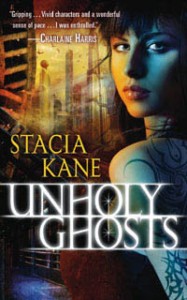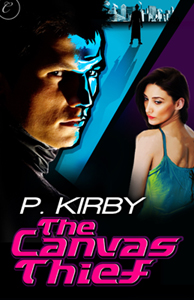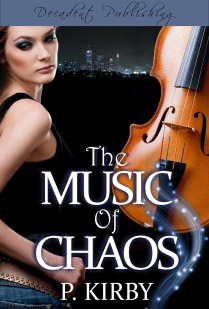 In which I actually like an urban fantasy novel….
In which I actually like an urban fantasy novel….
I first heard about Unholy Ghosts over on Dear Author, where a mild kerfuffle (very mild, by Internet standards) went down in the comments over the protagonist’s drug use. I remember it being a matter of the Hugs Not Drugs crowd showing up and getting their pearls in a twist. Looking at the thread now, the bulk of the “controversy” seems to be over author’s comments on her book, her “warnings” not to read it if drug use is a trigger for the reader. Oh, boy, my Swiss cheese memory. At any rate, it caught my attention despite my growing (and ironic? hypocritical?) aversion to urban fantasy (UF).
As I’ve said before, I’m just not feeling the love for the cookie-cutter, ass-kicking, swaggering, loner heroine who typifies a lot of UF titles. I find I can’t relate to them at all.
Consequently, I’ve left a long trail of “Did Not Finish” urban fantasy novels in my wake lately. One exception being Lauren Beukes’s Zoo City and now, Unholy Ghosts. Naturally, as a reader and a writer, my question is why did these two books work when others didn’t? Especially since the protagonists possess some of the archetypal UF heroine characteristics (loners, family issues).
The key characteristic that Chess (Unholy Ghosts) and Zinzi (Zoo City) share is that both lack the usual over-confident swagger. Both are young women living in tough urban environments; both have formed the requisite tough shell to cope. But neither is really “ass-kicking.” Both plot lines put the protagonists in situations that are waaay over their heads. While, as a feminist, I appreciate the idea of a woman who can kick anything’s ass, in application the notion often results in a dull story. She’s super-tough; nothing can stand against her; now what?
I guess the word I’m looking for here is “vulnerable.”
Of course, Chess’s drug use is a key part of that vulnerability, a fatal flaw really. This is why, I think, the issue isn’t taken up as part of her character arc. She doesn’t deal with her drug use; she has no interest in kicking the habit. Mileage may vary, but I kinda dug this aspect of the characterization. She is what she is. (That said, I wonder how long the series can maintain its almost flippant tone regarding her drug use. More interestingly, would a “clean” Chess work as well?)
Chess is a Debunker for the Church. Despite its Judeo-Christian sounding name, the Church is anything but a place to worship lord almighty. The existence of god(s) has been disproved by the arrival of hungry ghosts who have a hankering for live meat. The one Truth is that the Church is the only thing between the ghostly horde and you. To further the meme that the Church is the only protection against ghosts, anyone who is troubled by a haunting is paid monetary compensation for their troubles. Naturally, there are people who try to fake a haunting for money. It’s Chess’s job to sort the real ghosts from those that are nothing more than a bed sheet with two eye holes.
Chess’s latest Debunking case is the Mortons, your typical white, suburban, middle class family. Just a few minutes into her initial interview with the family, Chess suspects that there’s a lot of hoax in their ghost. That is, until she returns at night later and is attacked by a terrifying dark entity.
Meanwhile, because, like any drug addict, she doesn’t have the sense to pay-as-you-use, she’s racked up a big bill with her dealer, Bump. Bump summons her to his headquarters and tells her that her original debt of 5K has swelled to 15K–interest, Baby! But her debt will be erased if she deals with the haunting at the abandoned Chester airport. Bump wants to reopen the airport to better facilitate his distribution of happy pills. Accompanied to the site by Bump’s henchman, Terrible, Chess finds that there is a haunting and … someone has been doing dark magic. She also finds the story’s McGuffin, a copper amulet that cuts her hand and gives her the nastiest infection, ever. (Think, skin crawling-yuck.)
Of course, Bump’s rival in illegal narcotics isn’t thrilled about his use of the airport. The rival tells Chess in no uncertain terms that Bump will not be reopening the airport.
Torn between two dealers, feeling like a tool….
All in all, Chess isn’t my favorite female character, and I sometimes found her constant drug use annoying. (Mostly because I started to wonder how anyone could use that much and still function.) I think, had Unholy Ghosts been written in first person POV, Chess would have been downright grating. So Chess’s characterization is saved by the use of third person. But again, I enjoyed the fact that Chess wasn’t always totally capable, that she sometimes was scared out of her mind.
Ugly Ghosts strongest character is Terrible, Bump’s seemingly brutish enforcer. I love how his character is revealed, bit by bit, throughout the story, growing more and more complex. There’s the implication of a love triangle between Chess, Terrible and Lex, the rival drug dealer’s enforcer. Lex is the good looking hunk, while Terrible is the muscle bound brute, but it’s Terrible who wins my heart. He’s like a big lovable teddy bear–who beats the living shit out of people.
The underlying world building in Unholy Ghosts is interesting and I particularly liked the idea of a world where magic exists and is the de facto religion. I like the odd street dialect employed by Terrible and others, though it takes some time to get used to.
Looking forward to reading the next book in this series!
Cross posted at Goodreads.


